
Propane and natural gas powered standby generators.
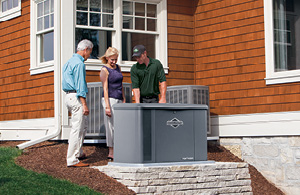
Having a backup generator is essential for staying safe and making sure that life goes on as normal during power outages caused by downed wires or major storms. In fact, the extreme weather of recent years highlights that having a standby generator really
is a necessity for any home, from keeping food from spoiling to making sure that any critical medical devices remain powered up.
As your local home service experts, you can trust us for all of your standby generator needs, including:
- Natural gas and propane powered portable and whole house generators that feature automatic transfer switches to turn power on as soon as your utility's power goes off
- Expert insight to help you choose which generator best fits your budget, home and particular needs with attractive financing for qualified customers*
- Professional, certified technicians to take care of all of your generator tune ups, repairs and service needs, anytime you need them, 24/7, whatever the weather, every day of the year.
The effects of power outages:
- 3.5 million people experience a power outage each week.
- You can lose over $200 in food due to spoilage from powerless freezers and refrigerators.
- Basement flooding due to unpowered sump pumps can cost over $20,000 in repair and replacements costs.
- It can cost over $150 a night to stay at a hotel for you and your family.
Whole house, standby generator tune-ups/service plans.
Finding out that your standby generator isn't working after a storm or power outage is too late. Be smart, plan ahead and schedule one of our tune-ups to ensure that your generator is always ready to keep you safe and comfortable anytime power goes off.
Generator List
Financing options

Financing options
We have attractive equipment financing options for new heating and A/C systems with $0 down for qualified customers.
Learn more
Related articles.
Make sure your home is prepared for storms.
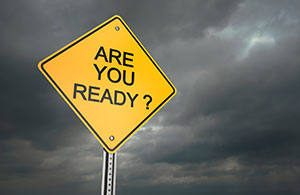 June 1st through November 301 is considered 'hurricane season' along the Eastern and Mid-Atlantic coast. As Hurricane Sandy demonstrated, major storms can be devastating but some of the damage caused
by storms can be mitigated by homeowners living in areas affected by them if they are properly prepared.
June 1st through November 301 is considered 'hurricane season' along the Eastern and Mid-Atlantic coast. As Hurricane Sandy demonstrated, major storms can be devastating but some of the damage caused
by storms can be mitigated by homeowners living in areas affected by them if they are properly prepared.
We’ve compiled some important tips and advice to help you make sure that you’re prepared for a hurricane or any other type of storm that could cause damage to your home – especially if the weather is severe enough to take power out for
several days.
Listen to all weather advisories and heed all warnings
- Sign up for local alerts.
- Most county emergency management offices have a text messaging system that residents can sign up for to be alerted of any severe weather situations.
- You can also download emergency apps from NOAA and the Red Cross.
- Send the text message HURRICANE to 43362 (4FEMA) 2 to be notified of safety tips and other important information.
Storm preparedness outdoors
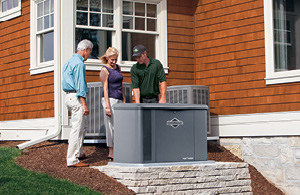
- Have gutters cleaned regularly. Clogged gutters can lead to expensive gutter repairs and water damage to your walls, basement, and foundation.
- Get your roof inspected to make sure you don’t have loose or broken roof tiles, and that everything is sealed tightly to prevent flooding from the roof.
- Consult with an arborist or tree care specialist to make sure that any large trees close to your home are strong and won’t fall during a storm.
- Put outdoor furniture, garbage, recycling containers, or anything else that might turn into a projectile in high winds into your garage or basement.
- Download FEMA’s Guide to Hurricane Preparedness which covers everything from smart ways to protect your home to gathering supplies and features important information about dealing with the aftermath of any major disaster.
Storm preparedness indoors
- Get an NOAA Emergency Weather Radio to alert you when emergency weather situations are imminent even if you’re asleep or don’t have power.
- Many devices can be charged with external battery packs that charge cell phones or hand cranks.
- Pack a home emergency readiness kit that includes non-perishable food, a flashlight, batteries, plenty of water, hand sanitizer, blankets, clean clothing, paper plates, plastic utensils and cups, pillows, and any required medication.
- If you live in an area prone to power outages, it's smart to purchase a whole house or standby generator. Don’t wait until just before the storm is forecast to get one, as supplies often cannot meet demand with a hurricane is on the way.
- Make sure to test any generator before it might be required. Think about how you intend to use it, how long you may need to use it because of power outages, and how you can safely store it during the storm.
- Talking to a licensed professional can help you decide which generator is best for you, your home, and particular needs. Having a backup generator can be a huge benefit when a storm hits, but only if you know how to use it safely.
- You may be forced to evacuate your home, so pack an evacuation kit for each member of your family. Put legal, financial, and insurance documents along with health records, the title to your home and cars, marriage licenses, and other important documents and papers in a storm and fireproof box in a location that's quick and easy to grab if you're evacuated.
- Turn your refrigerator up to the highest setting. The Red Cross suggests freezing leftover food, deli meats, cheeses, and milk. Freezing protects these foods from exposure, so keep them in temperatures below 40 degrees Fahrenheit for more than two hours.
- Make sure to turn off the gas in your home to avoid the potential of carbon monoxide poisoning.
- If there is any chance of flooding, be safe and turn off electricity as the combination of water and electricity is very dangerous.
- Unplug appliances, water heaters, and remove anything you can remove from the basement, to minimize the extent of any potential damage.
1. Hurricane Research Division, Atlantic Oceanographic & Meteorological Laboratory
2. FEMA http://www.fema.gov/media-library/assets/documents/98105
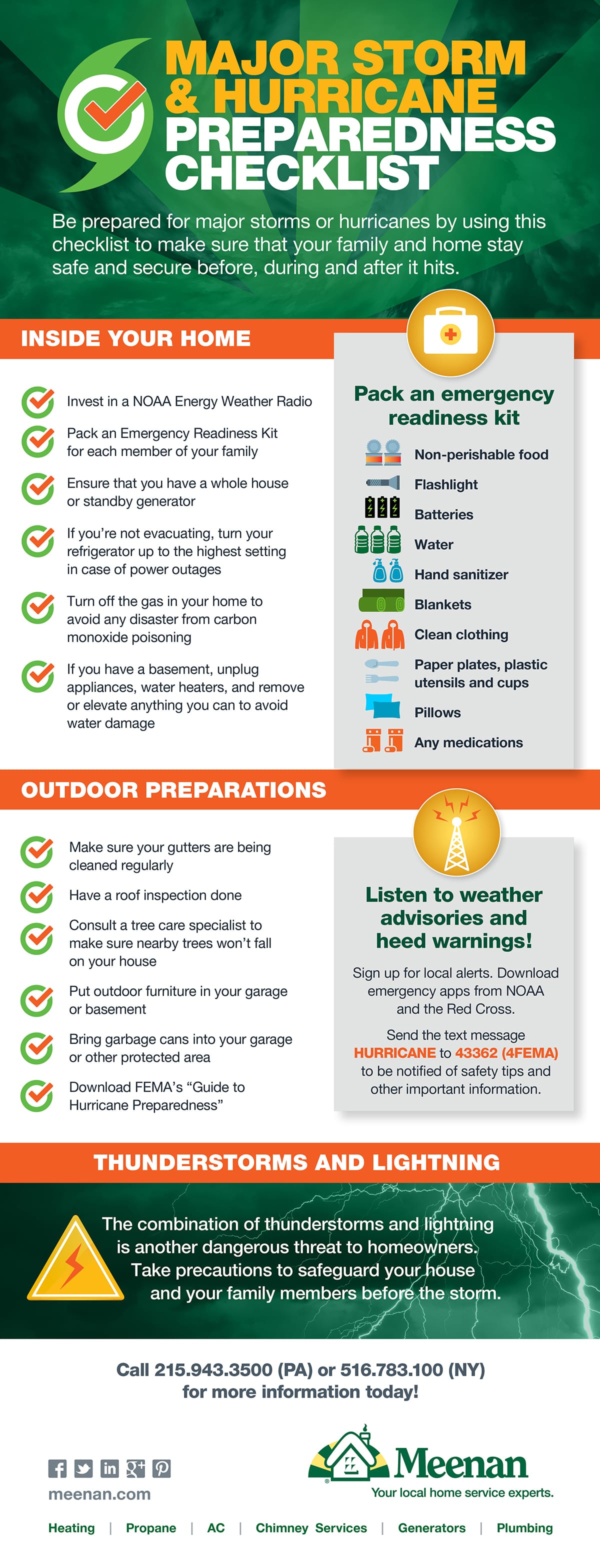


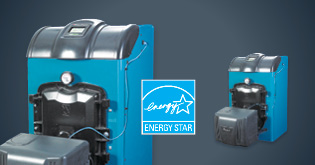
.jpg?sfvrsn=59b4717f_1)
.jpg?sfvrsn=38eb02bb_5)